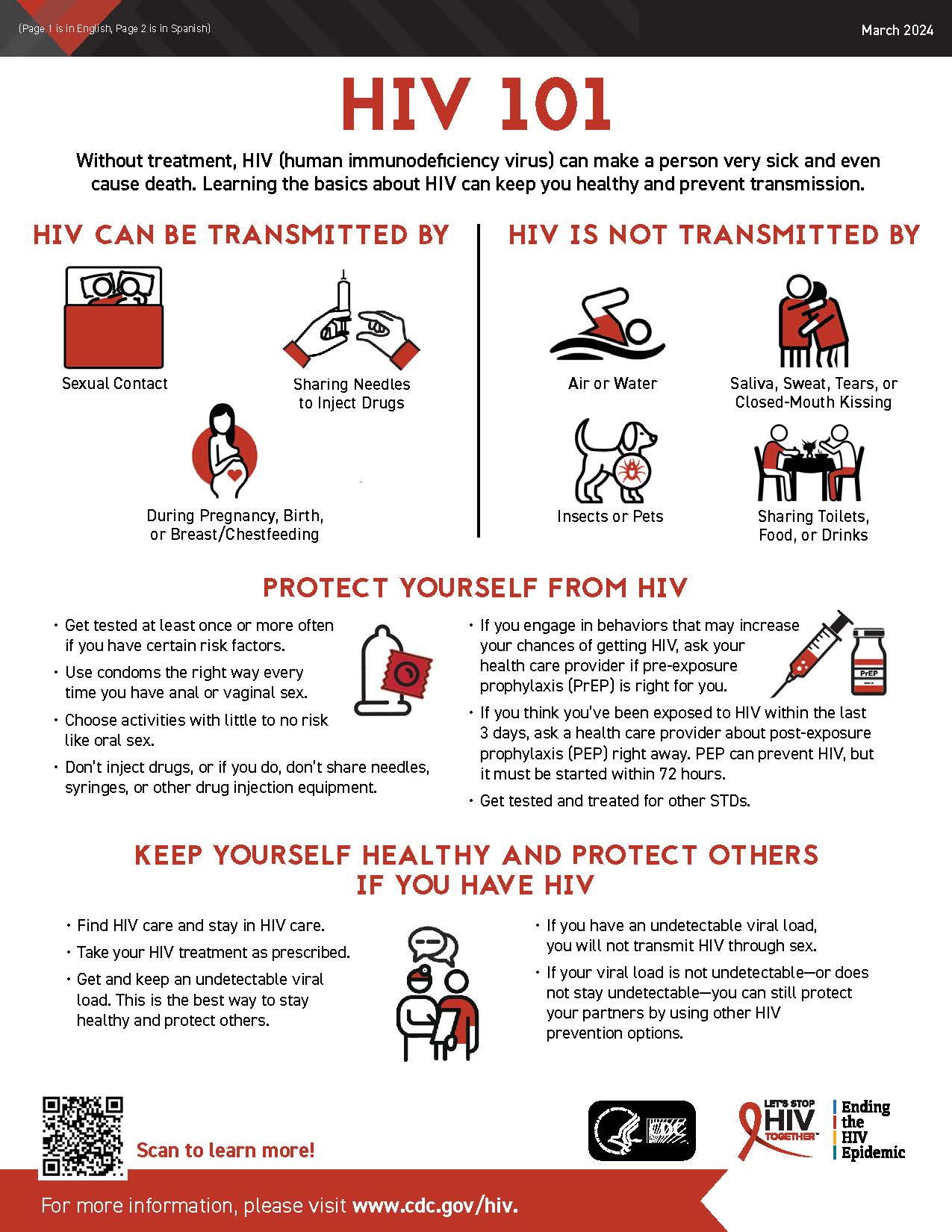HIV and AIDS in South Carolina
- In South Carolina, almost 15,000 of your neighbors — including about 200 children and teens — are living with HIV infection or AIDS.
- Throughout the United States, more than 1 million residents are living with HIV or AIDS, and nearly one-fifth do not know they have it.
- Each year, more than 56,000 new cases are diagnosed. An estimated 600,000 U.S. citizens have already died from the virus.*
- Worldwide, more than 60 million people, including millions of children, have been infected since the early 1980s. As many as 25 million people have died from AIDS.**
*U.S. Centers for Disease Control and Prevention.
** Joint United Nations Programme on HIV/AIDS

What are HIV and AIDS?
- HIV is a virus that attacks and weakens a person's immune system. The immune system is made up of a network of cells, tissues, and organs that work together to protect the body and fight off germs and diseases.
- If the immune system of an HIV-positive person gets so weak that it can no longer fight off a range of health problems it would normally be able to cope with, the person is considered to have AIDS.
- HIV can be passed from person to person through blood, semen, vaginal fluids, breast milk and other body fluids. It can happen:
- When a person has sex with someone who has the HIV virus and they do not use a condom
- When people exchange infected needles or syringes
- During pregnancy, childbirth or breastfeeding, when an HIV-positive mom can pass the virus to her baby (although, with effective treatment and care the risk of transmission from mother to child can be greatly reduced).
- There is no cure for HIV, but there are medicines that can keep the virus under control and the immune system healthy. So long as a person gets proper medical treatment for HIV, they can usually live a healthy, active life. (However, when HIV is diagnosed after a person has had it for a long time, medical treatment may be less effective.)
Protect Yourself
Here are steps you should take to protect yourself from the virus:
- Abstain from sex or use a condom when having sex.
- Never share needles, syringes or any other injecting equipment.
- If you are sexually active, get tested.
- Act aware. This means:
- Taking care of your own health and wellbeing
- Acting responsibly to protect the health and wellbeing of others
- Treating everyone living with HIV fairly and with understanding.
That last point is important. Many people who have HIV find it hard to tell other people they have the virus. Some have had to deal with rejection from friends, family or colleagues and have even experienced verbal or physical abuse.
There is still a great deal of ignorance about how HIV is transmitted, a lack of understanding of what it's like to live with HIV, and unfair assumptions and judgments made about people who get HIV. The stigma keeps many people from getting tested and treated.
We know that regularly testing people most at risk for HIV — and then providing antiretroviral drugs for HIV/AIDS patients — dramatically reduces the number of new infections. Without treatment or education, people will continue to transmit the virus to their partners.
By acting aware, you become part of the solution.
This site contains HIV prevention messages that may not be appropriate for all audiences. Since HIV infection is spread primarily through sexual practices or by sharing needles, prevention messages and programs may address these topics. If you are not seeking such information or may be offended by such materials, please exit this website.
What Can Women Do?
- Talk about it. Learn the facts about HIV, and share this lifesaving information with your family, friends, and community. Doing It - getting tested for HIV. Knowing your HIV status gives you powerful information to help keep you and your partner healthy. If you are pregnant or planning to become pregnant, get an HIV test as soon as possible.
The most effective way to prevent HIV is to abstain from sexual activity and injection drug use. However, if you are sexually active or use injection drugs, today there are more tools available to prevent HIV. You can:
- Use condoms the right way every time you have sex. Learn the right way to use a male condom or a female condom.
- Choose less risky sexual behaviors.
- Limit your number of sexual partners.
- Never share needles.
- Talk to your doctor about pre-exposure prophylaxis (PrEP), taking medicine daily to prevent HIV infection, if you are at very high risk for HIV.
- Talk to your doctor about post-exposure prophylaxis (PEP) if you think you may have been exposed to HIV within the last 3 days through sex, sharing needles and works, or a sexual assault.
Contact Us
STD/HIV Hotline: 1-800-322-2437
Find more information on women and girls HIV/AIDS awareness.

